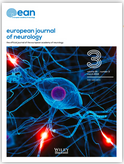 Myasthenia gravis is characterized by dysfunction of the neuromuscular junction. Its manifestations are refractory to the usual treatments (anticholinesterase drugs, corticosteroids, etc.) in 15% of cases. Rituximab, an anti-CD20 monoclonal antibody, therefore constitutes a second-line therapeutic alternative. Several case publications or case series support this option.
Myasthenia gravis is characterized by dysfunction of the neuromuscular junction. Its manifestations are refractory to the usual treatments (anticholinesterase drugs, corticosteroids, etc.) in 15% of cases. Rituximab, an anti-CD20 monoclonal antibody, therefore constitutes a second-line therapeutic alternative. Several case publications or case series support this option.
In an article published in June 2020, a French team reports the results of a real-life multicenter study conducted in 29 patients aged 18 and over, with myasthenia gravis refractory or dependent on corticosteroids and treated with rituximab. Twenty of them had anti-RACh autoantibodies, five had anti-MuSKs, and four were HIV negative. The results of this study confirm the efficacy of rituximab at 6 months, with:
- a favorable evolution (improvement, minimal manifestations or remission) of the post-interventional Myasthenia Gravis Foundation of America (MGFA) status in 86.2% of the participants;
- an increase in the myasthenic muscle score (MMS) from an average of 68 to 83.1;
- a reduction in the dose of corticosteroids below 10 mg / day in 57.9% of patients.
Less than half (42.8%) of participants experienced adverse effects: infections (21.4% of patients), infusion reaction (7%), cytopenia (7%), bradycardia (3.7%).
